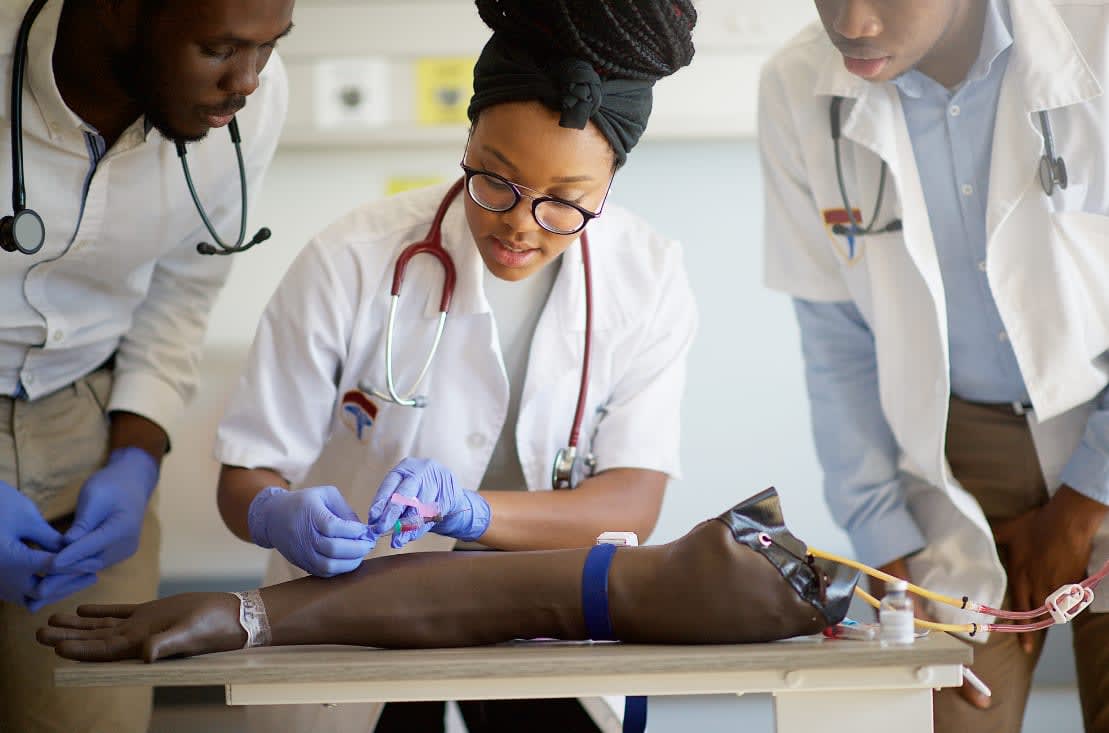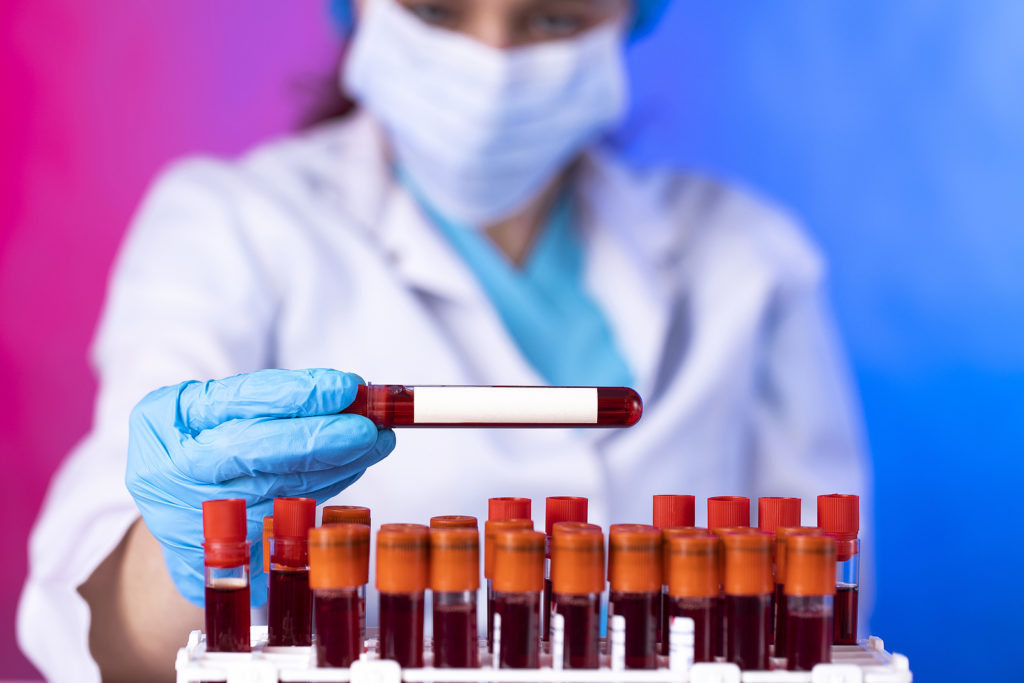The Course to Qualification: Recognizing the Phlebotomy Training Course Journey and Its Importance
As you think about the path to certification in phlebotomy, it's important to understand the role you'll play in medical care. Your training will certainly cover necessary skills, from blood collection techniques to patient communication.

The Function of Phlebotomists in Medical Care
Phlebotomists play a crucial function in the healthcare system, functioning as the essential web link between people and important diagnostic screening. You'll perform blood attracts, ensuring examples are collected precisely and safely. Your experience assists in detecting medical problems, keeping an eye on health, and assisting treatment decisions.
In your day-to-day interactions, you'll require to establish trust fund with patients, making them really feel comfortable throughout what may be a demanding experience. You're responsible for classifying and handling samples meticulously to avoid contamination or mistakes, which could impact test outcomes.
Beyond this, you'll often function alongside medical professionals and nurses, interacting essential information about individuals' problems. By grasping your abilities, you add meaningfully to individual treatment, making you an important component of the clinical group.
Introduction of Phlebotomy Training Programs
When discovering phlebotomy training programs, you'll locate various types developed to fit different schedules and discovering styles. Each program assists you establish necessary abilities like blood collection and person communication. Recognizing these alternatives is key to choosing the best path for your occupation.
Kinds of Educating Programs
Numerous kinds of training programs are readily available for those looking to end up being competent in phlebotomy. Furthermore, some healthcare facilities and clinics use on-the-job training programs, giving useful experience while you discover. Whatever course you choose, each program aims to furnish you with the necessary skills for a successful phlebotomy career.

Secret Abilities Created
Mastering phlebotomy requires a set of essential abilities that are created with comprehensive training programs. You'll discover technical skills like appropriate capillary choice, needle insertion, and blood collection methods. These hands-on techniques assure you can execute treatments securely and successfully. In addition, interaction abilities are basic; you'll require to engage with people, clarify treatments, and placed them at convenience. Recognizing composition and physiology is essential, as well, as it aids you situate blood vessels and recognize the body's action to blood draws. You'll obtain understanding of security protocols and infection control, assuring you maintain a sterilized setting. Each of these abilities is essential for your success as a certified phlebotomist, making you a beneficial possession in any kind of health care setting.
Trick Parts of a Phlebotomy Training Course
In a phlebotomy program, you'll concentrate on vital subjects that lay the groundwork for your future job. You'll participate in hands-on training that enables you to use what you've discovered in real-world setups. Both the curriculum and sensible experience are important for your success as a phlebotomist.
Core Educational Program Overview
While going after a phlebotomy training program, you'll experience a core educational program designed to furnish you with basic skills and expertise. Phlebotomy Training Course. This educational program typically includes composition and physiology, concentrating on the blood circulation system and comprehending blood components. You'll likewise find out around different kinds of blood collection methods, including venipuncture and capillary leak methods
In addition, infection control and security procedures are essential parts, guaranteeing you understand exactly how to maintain a clean and sterile setting. You'll examine patient interaction, emphasizing interaction and compassion, which are important for alleviating person anxiety.
Hands-On Training Experience
Obtaining hands-on experience is an important part of your phlebotomy training program. This functional training enables you to apply what you have actually discovered in a real-world setting, boosting your abilities and self-confidence. You'll exercise venipuncture methods, learn just how to handle various kinds of specimens, and get accustomed to the devices utilized in the area. Under the assistance of skilled instructors, you'll fine-tune your skills, ensuring you're prepared for any kind of scenario you might face.
Additionally, you'll obtain the opportunity to communicate with people, which is vital for developing your interaction skills. This mix of technical efficiency and social skills is important for your success as a certified phlebotomist. Eventually, hands-on training is where concept fulfills practice, strengthening your expertise and readiness for qualification.
Qualification and Licensing Needs
Before you can start your occupation in phlebotomy, it is essential to understand the accreditation and licensing demands that differ by state. Most states require phlebotomists to hold an accreditation from a recognized organization, such as the National Phlebotomy Organization or the American Society for Medical Pathology. These Phlebotomy school accreditations commonly involve passing an exam that evaluates your understanding and skills in the field.
In enhancement to qualification, some states have particular licensing demands. You might need to complete a specific variety of hours in scientific technique, send evidence of training, or undertake a history check. It is necessary to research your state's policies to make certain you meet all required criteria.
Staying informed about these requirements not only helps you safeguard a position but also boosts your integrity as a professional. By fulfilling these requirements, you'll be well on your way to a successful career in phlebotomy.
Hands-On Training and Practical Experience
Hands-on training and practical experience are important components of your phlebotomy education and learning, as they allow you to use academic understanding in real-world scenarios. During your training, you'll participate in monitored venipuncture, discover appropriate methods, and become aware of various blood collection tools. This straight involvement is crucial for building your self-confidence and refining your skills.
You'll work closely with knowledgeable experts that can assist you through the subtleties of individual interaction and example handling. Each session not only enhances your understanding however also prepares you for the busy setting of health care settings.
Furthermore, numerous programs include professional rotations, permitting you to experience diverse setups, from health centers to outpatient centers. This direct exposure assists you adjust to different difficulties and patient demands, guaranteeing you're well-prepared for your future role. Welcome these opportunities, as they're necessary to ending up being a skilled and thoughtful phlebotomist.
Challenges Encountered During Training
While obtaining hands-on experience is necessary, it is essential to identify the challenges that can develop throughout your phlebotomy training. You might run into anxiety when doing treatments on real clients, specifically if you're new to the environment. The pressure to obtain every little thing right can be overwhelming. Furthermore, understanding the abilities required for blood draws takes method; you might fight with technique at first.
Time monitoring can additionally be a difficulty, as harmonizing theory, useful sessions, and personal commitments can feel intimidating. You may face differing finding out rates amongst your peers, bring about sensations of insecurity if you believe you're dropping behind. Adapting to the various individualities of trainers can be difficult, as each may have a distinct training design.
Identifying these challenges early can prepare you for success and assist you establish durability throughout your training journey.
Job Opportunities After Qualification

As you obtain experience, you might also consider focusing on locations like pediatric or geriatric phlebotomy, accommodating particular patient requirements. Some phlebotomists pick to advance their jobs by becoming lab service technicians or seeking further education in medical care fields.
Furthermore, your qualification can lead to functions in training or monitoring brand-new phlebotomists, permitting you to share your knowledge. With the health care sector continually growing, your skills will certainly always be in need, leading the way for a steady and satisfying career. Embrace the chances waiting on you!
Regularly Asked Inquiries
What Is the Typical Duration of a Phlebotomy Training Program?
Phlebotomy training courses commonly last around four to eight weeks. You'll participate in hands-on practice, classroom direction, and on the internet discovering. Finishing this training prepares you for qualification and a fulfilling career in healthcare.
Are Online Phlebotomy Courses Available?
Yes, on the internet phlebotomy programs are offered. They supply flexibility and benefit, enabling you to examine at your very own speed. Simply confirm the program is certified to satisfy accreditation demands and acquire important skills for your career.
Just How Much Does Phlebotomy Training Generally Cost?
Phlebotomy training usually sets you back between $700 and $2,500, depending on the program and location. You need to take into consideration variables like training course length, included materials, and hands-on experience when picking the appropriate training for you.
What Prevail Prerequisites for Phlebotomy Training?
Usual prerequisites for phlebotomy training usually consist of a high institution diploma or GED, booster shots, and a background check. Some programs might likewise require fundamental healthcare understanding or certifications, guaranteeing you're prepared for hands-on training.
Can I Function While Completing My Phlebotomy Training?
Yes, you can function while completing your phlebotomy training. Lots of pupils balance work with their studies, yet make sure to handle your time efficiently to assure you meet both job and training dedications effectively.
Comments on “Phlebotomy Training Course: State-Specific Rules”